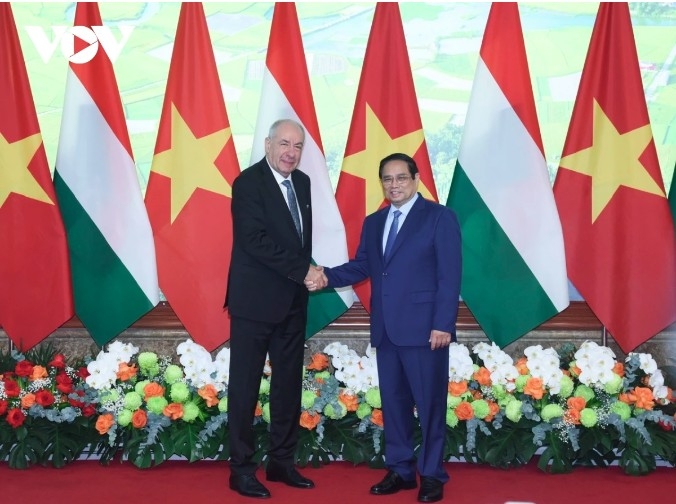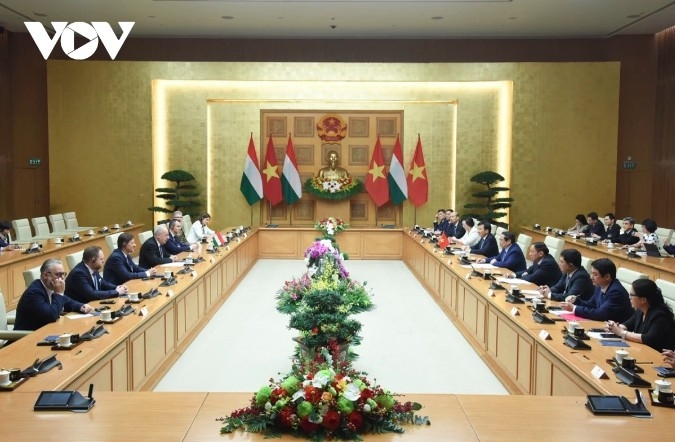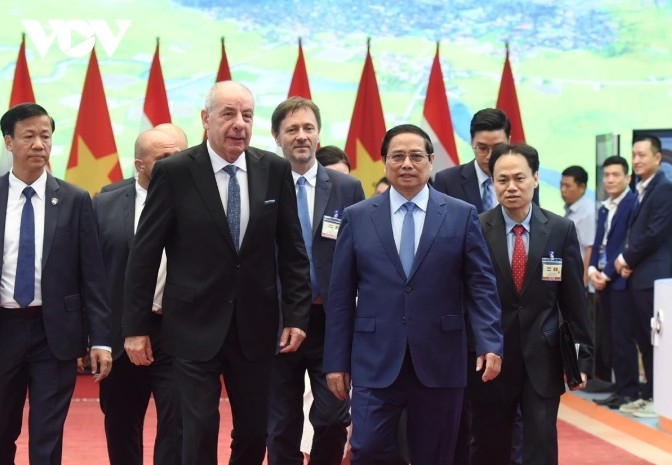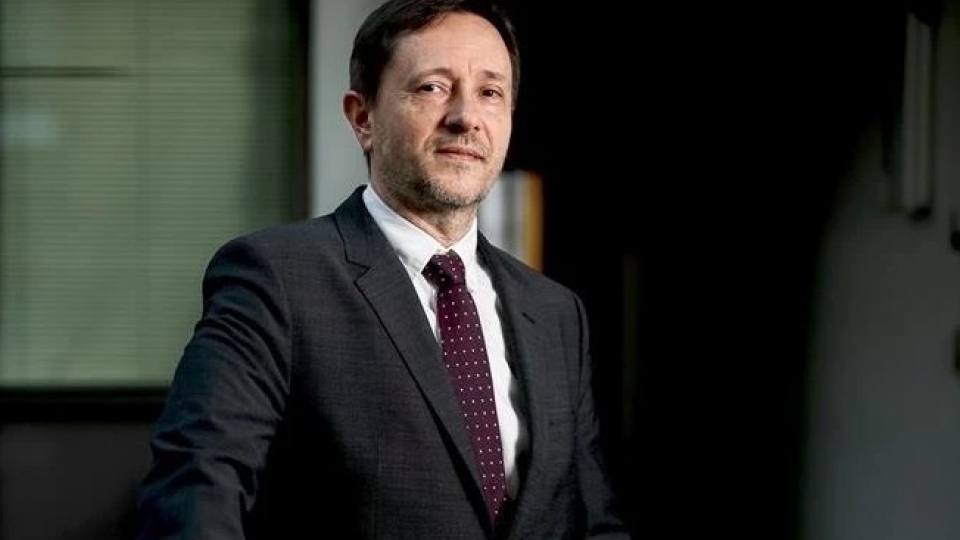Vietnam, Hungary deepen all-around ties on 75 years of diplomacy
VOV.VN - Vietnamese Prime Minister Pham Minh Chinh has affirmed Hungary’s priority status in Vietnam’s foreign policy and outlined strategic directions for expanding the comprehensive partnership, with a focus on trade, education, technology, and people-to-people exchange.

Prime Minister Pham Minh Chinh had a meeting with visiting Hungarian President Sulyok Tamas on the morning of May 29, at the Government Office in Hanoi.
Welcoming the President and his delegation, the Vietnamese cabinet leader laid stress on the significance of the visit, which comes as both nations mark the 75th anniversary of diplomatic ties (1950–2025) and as Vietnam celebrates the 80th anniversary of its founding.
PM Chinh recalled the positive outcomes of his official visit to Hungary in January 2024 and expressed confidence that President Sulyok’s trip would give fresh impetus to the Vietnam–Hungary Comprehensive Partnership, while boosting stronger cooperation across a variety of fields for the benefit of both peoples and for peace, stability, solidarity, and sustainable development in the region and the world.
He reaffirmed that Vietnam has never forgotten the valuable support Hungary gave during the country’s struggle for independence and reunification, and now in its national development. He also thanked Hungary for being the largest provider of concessional loans to Vietnam among Central and Eastern European countries, with a commitment of US$500 million. During the most challenging period of the COVID-19 pandemic, Hungary provided vaccine assistance that contributed to Vietnam’s swift recovery.
Vietnam, Chinh said, pursues a foreign policy based on peace, independence, self-reliance, diversification, and multilateralism. As a trusted partner and responsible member of the international community, Vietnam places high importance on strengthening ties with traditional friends in Central and Eastern Europe, with Hungary being a top priority.

In a spirit of trust and friendship, the Government chief shared that Vietnam, having overcome war, sanctions, and hardship, has made major strides in development. Its GDP reached US$473 billion in 2024; per capita income is approaching the upper-middle income threshold; and its happiness index rose 11 places last year and eight more this year.
Vietnam has established diplomatic ties with 194 countries and joined 17 free trade agreements (FTAs), that connect it with 60 of the world’s major economies.
He outlined Vietnam’s long-term strategic directions, structured around three key pillars: building a socialist democracy, a socialist rule-of-law state of the people, by the people, and for the people, and a socialist-oriented market economy. The country is also focused on three strategic breakthroughs, including improving institutions, developing infrastructure, and nurturing high-quality human resources. The nation aims to develop an independent, self-reliant economy driven by science, technology, and innovation; promote the private sector; streamline the administrative apparatus; and deepen international integration, with a vision of becoming a high-income developed country by 2045.
In response, President Sulyok Tamas showed his elation at visiting Vietnam and his deep admiration for the country’s historic achievements after nearly four decades of pursuing Doi Moi (Renewal) process. He praised Vietnam’s growing regional and international stature, affirmed the its proper development path, and emphasized that Vietnam is one of Hungary’s most important partners in ASEAN.
The President agreed with PM Chinh’s proposal to ramp up cooperation in six key areas. These include building political trust; expanding trade and investment ties, especially by convening the joint economic committee soon and working toward a bilateral trade volume of US$2 billion; enhancing development cooperation; and boosting cooperation in education, labor, culture, tourism, and people-to-people exchange.
President Sulyok pledged his nation’s continued support for the early ratification of the EU-Vietnam Investment Protection Agreement (EVIPA) by remaining EU member states and for urging the European Commission to soon lift the IUU “yellow card” on Vietnamese seafood exports.
The two sides agreed to effectively carry out existing bilateral agreements, augment cooperation in traditional areas such as trade, science and technology, education and training, defence and security, healthcare, culture, tourism, and exchanges, and expand ties into new fields of shared strength and complementary needs, such as digital transformation, artificial intelligence, agriculture, pharmaceuticals, and labor.
PM Chinh also thanked the Hungarian government for supporting the Vietnamese community in the host nation, while encouraging their deeper integration and contributions to local socio-economic development. He emphasized their role as a vital bridge in the long-standing friendship between the two countries.
Both leaders acknowledged the valuable contribution of Vietnamese alumni who studied in Hungary, viewing them as a valuable resource for propelling bilateral relations forward.





